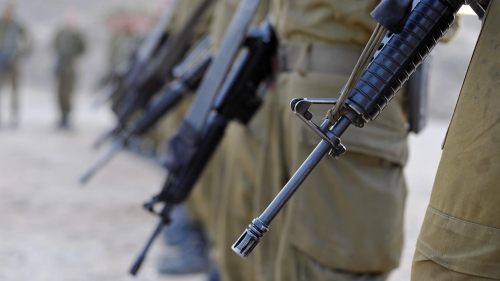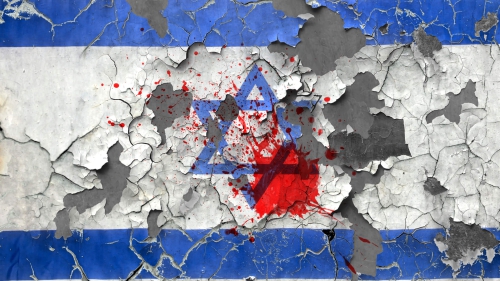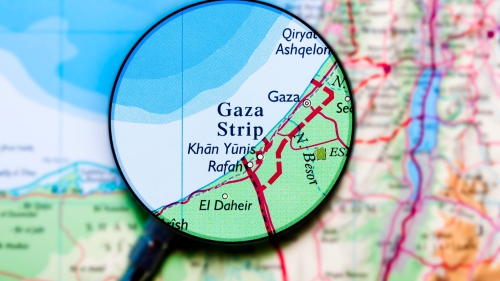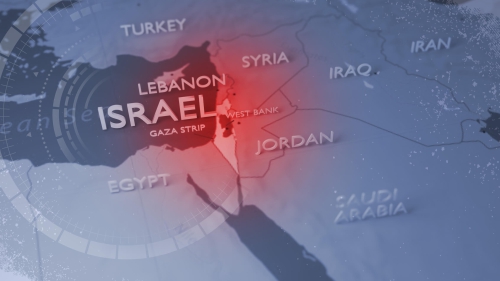The Palestinian Nakba: The Resolve of Memory
 |
Many Palestinians remember and reference al-Nakba, also known as the Catastrophe, on May 15 every year. The event marks the expulsion of nearly a million Palestinians, while their villages were destroyed. The destruction of Palestine in 1947-48 ushered in the birth of Israel. Older generations relay the harsh and oppressive memory of their collective experience to younger Palestinians, many of whom live their own Nakbas today.
In covering al-Nakba, sympathetic Arab and other media play sad music and show black and white footage of displaced, frightened refugees. They rightly emphasize the concept of Sumud, steadfastness, as they show Palestinian of all ages holding unto the rusty keys of their homes and insisting on their right of return. Other, less sympathetic media discuss al-Nakba, if at all, as a side note - a nuisance in the Israeli narrative of a nation's supposedly miraculous birth and its progression to an idyllic oasis of democracy. What such reductionist representations often fail to show is that while al-Nakba started, it never truly finished.
Those who underwent the pain, harm and loss of al-Nakba are yet to receive the justice that was promised to them by the international community. UN Resolution 194 states that "the refugees wishing to return to their homes and live at peace with their neighbors should be permitted to do so at the earliest practicable date" (Article 11). Those who wrought this injustice are also yet to achieve their ultimate objectives in Palestine. After all, Israel doesn't have defined boundaries by accident.
David Ben Gurion, first Prime Minister of Israel, once prophesized that "the old (refugees) will die and the young will forget." He spoke with the harshness of a conqueror. Ben Gurion carried out his war plans to the furthest extent possible. Every region in Palestine that was meant to be taken was captured, its people were expelled or massacred in their homes and villages. Ben Guiron 'cleansed' the land, but he failed to cleanse Israel's past. Memory persists.
Ben Gurion referenced my own family's village - Beit Daras - which witnessed three battles and a massacre. In an entry in his diaries on May 12, 1948, he wrote: "Beit Daras was mortared. Fifty Arabs (were killed). The (villages of) Bashit and Sawafir were occupied. There is mass exodus from nearby areas (neighbors in Majdal). We sustained 5 dead and 15 wounded. " (War Diaries, 1947-1949).
More than fifty people were killed in Beit Daras that day. An old Gaza woman, Um Mohammed - who I discussed in my last book, My Father was a Freedom Fighter - refers to what is likely the same event:
"The town was under bombardment, and it was surrounded from all directions. There was no way out. The armed men (the Beit Daras fighters) said they were going to check on the road to Isdud, to see if it was open. They moved forward and shot few shots to see if someone would return fire. No one did. But they (the Zionist forces) were hiding and waiting to ambush the people. The armed men returned and told the people to evacuate the women and children. The people went out (including) those who were gathered at my huge house, the family house. There were mostly children and kids in the house. The Jewish (soldiers) let the people get out, and then they whipped them with bombs and machine guns. More people fell than those who were able to run. My sister and I...started running through the fields; we'd fall and get up. My sister and I escaped together holding each other's hands. The people who took the main road were either killed or injured. The firing was falling on the people like sand. The bombs from one side and the machine guns from the other."
Ben Gurion would not necessarily doubt Um Mohammed's account. He candidly stated: "Let us not ignore the truth among ourselves...politically we are the aggressors and they defend themselves...The country is theirs, because they inhabit it, whereas we want to come here and settle down, and in their view we want to take away from them their country" (as quoted in Chomsky's Fateful Triangle, pp. 91-2).
It is precisely for this reason that neither the old nor the young have forgotten. Every day is another manifestation of the same protracted al-Nakba that has lasted 64 years now. Young people's hardships today are inextricably linked to the violent and horrific uprooting decades ago.
Al-Nakba has also remained an ongoing project through generations of Israeli Zionists. When Ben Gurion died in 1973, current Israeli Prime Minister Benjamin Netanyahu was in his mid-twenties. He was then serving his last year in the Israeli army, and today he rules Israel with a coalition that includes almost three quarters of the Israeli parliament. Like most Israeli leaders, he continues to contribute to the very discourse by which Palestine was conquered. He speaks of peace, while his soldiers and armed settlers take over Palestinian homes and farms. He makes repeated offers to Palestinians for 'unconditional' talks, as he repeats his violent rejection of every Palestinian aspiration. His lobby in Washington is much stronger than ever before. He reigns supreme, as he continues to fulfill the 'vision' of early Zionists.
Old keys and deeds of stolen lands attest to the intergenerational experience that is Al-Nakba. Today Palestinians continue to be herded behind military checkpoints. They are denied the right to proper medical care, and their ancient olive trees are ruthlessly bulldozed. What Israel has not been able to control, however, is the resolve of Palestinians. The prison, the checkpoint and the gun reside in our collective memory in a way that cannot be held captive, controlled, or shot.
In fact, al-Nakba is not a specific date or an estimation of time, but the entirety of those 64 years and counting. The event must not be assigned to the shelves of history, not as long as refugees are still refugees and settlers continue to rob Palestinian land. As long as Netanyahu speaks the language of Ben Gurion, other 'catastrophic' episodes will follow. And as long as Palestinians hold on to their keys and deeds, the old may die but the young will never forget.
*****
Ramzy Baroud (www.ramzybaroud.net) is an internationally-syndicated columnist and the editor of PalestineChronicle.com. His latest book is "My Father Was a Freedom Fighter: Gaza's Untold Story" (Pluto Press, London), now available on Amazon.com.
Related Suggestions
You wrote "If the American Government and the European Union get together and put pressure on Israel a solution can be found for the Palestinians.".
Funny, you muslims / Arabs cannot solve any of your own problems; you depend on imperialists to do the job for you, the same imperialists you castigate everyday. What happened to psyche of mighty Arab / muslim. Did this psyche conquer large part of the world? How demorilized one can get.
If you depend on imperialists to provide with Palestinian solution, good luck; they are happy to see Israel keep Arabs down; you people don't understand politics.
Palestine is a muslim problem, not an imperialist problem; so don't expect any solution from the imperialists. All the Arab / muslim intellectuals can do is to write articles, which imperialists (and their citizenry) ignores, if they read them in the first place.
Sorry for being harsh.
We invite contributors to this forum to share this suggestion.
So why would no Arab / Palestinian intellectual consider December 1917 as Nakba? Because Arabs welcomed the demise of Turkish Ottoman overlords and welcomed British. Palestinians would not have rebelled against British if there was no Jewish immigration. Essentially Nakba dates from creation of Israel and not from defeat of muslims in 1917.
Turks are not wasting their lives in 'momories' of mighty Ottoman Empire, and nor are British living in memory of an Empire on whom sun never set. Mighty Mughal Empire (India) is long gone; you cannot even find any of their children any more (some of them actually live in US and Canada, not in India or in Samarkand).
Get on with your lives. 90% of the people who lived in Palestine are already dead or close to dying; the ones who are talking about 'momories' were not even born and hence cannot have any memories. Get away from sentimentalism. Hindus don't relish in memories of mighty Hindu Empires of 1200 years ago (if those empires ever existed and were even mighty).
Yes, get on with your lives.

















